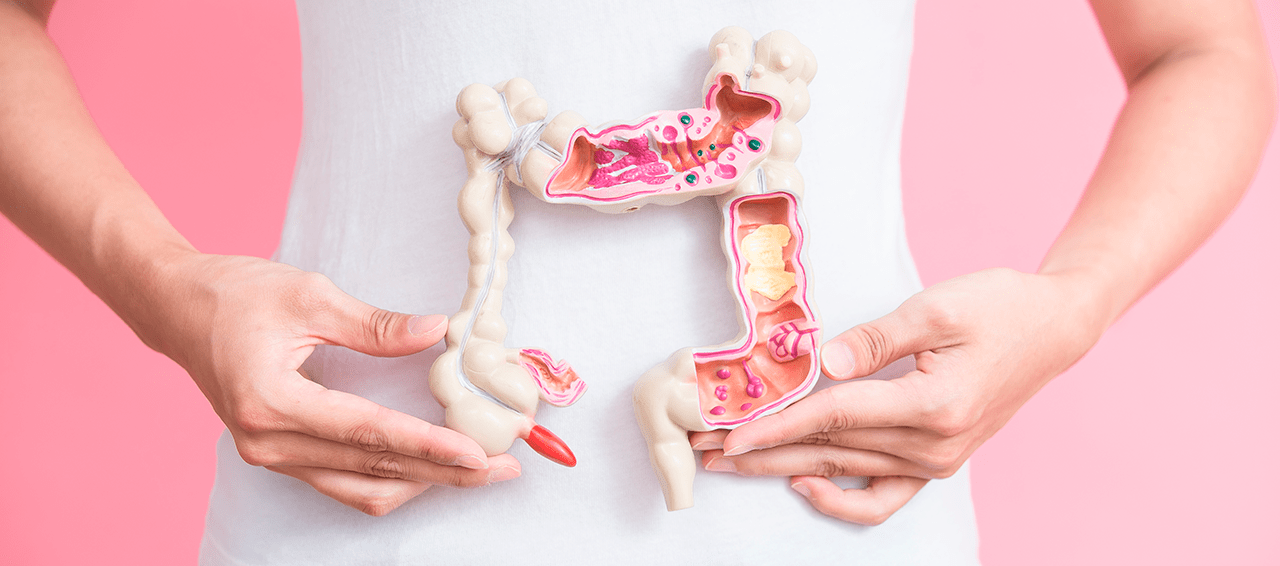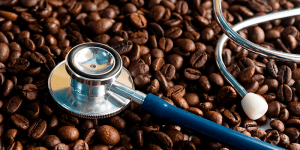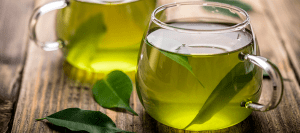El consumo de café y el riesgo de cáncer colorrectal: un meta-análisis de estudios observacionales
27-04-2017
Se adelantó una revisión sistemática y meta-análisis de estudios observacionales con el objetivo de estimar la relación entre consumo de café y riesgo de cáncer colorrectal. Se realizó una búsqueda en Medline, the Cochrane Controlled Trials Register, EMBASE, Science Citation Index y PubMed incluyendo estudios de cohorte y casos y controles en inglés, hasta mayo de 2011. Se establecieron criterios de inclusión. No se estimó la calidad de estos estudios. En cuanto al análisis estadístico, se evaluó la heterogeneidad empleando un test de X2. También se empleó un modelo de efectos aleatorios para combinar los estudios que evidenciaron algún grado de heterogeneidad. El riesgo de sesgo de publicación fue estimado usando el test de regresión de Egger. Para el meta-análisis se incluyeron 25 estudios de casos y controles (15522 casos) y 16 estudios de cohorte (10443 casos). Comparando el consumo más alto de café VS el consumo más bajo o no consumo, los resultados combinados de los estudios de casos y controles evidenciaron una relación inversa significativa con cáncer colorrectal (OR= 0.85, IC 95% 0.75- 0.97) y cáncer de colon (OR=0.79, IC 95%, 0.67-0,95), pero no con cáncer rectal (OR=0.95, IC95%, 0.79-1.15). En el caso de los estudios de cohorte se evidenció una relación inversa con cáncer colorrectal, (RR=0,94 IC 95% 0,88-1.01) , cáncer de colon (OR=0.93 IC 95% 0.86-1.01), y cáncer rectal (OR=0.98, IC 95% 0.88-1,09), aunque ninguna de las anteriores estadísticamente significativa. En el análisis de subgrupos para los estudios de casos y controles se evidenciaron relaciones inversas significativas en mujeres para cáncer colorrectal y en Europa para cáncer colorrectal y de colon. Con respecto a los estudios de cohorte, el análisis de subgrupos identificó una disminución del riesgo de cáncer de colon únicamente en mujeres asiáticas. Los resultados de este meta-análisis sugieren que el consumo de café podría disminuir el riesgo de cáncer de colon y colorrectal, especialmente en Europa y para el sexo femenino.
Li G, Ma D, Zhang Y, Zheng W, Wang P. Coffee consumption and risk of colorectal cancer: a meta-analysis of observational studies. Public Health Nutrition: 16(2), 346–35
1. Ahmedin Jemal D, Bray F, Center MM et al. (2011) Global cancer statistics. CA Cancer J Clin 61, 69–90.
2. Wiseman M (2008) The second World Cancer Research Fund/American Institute for Cancer Research expert report. Food, nutrition, physical activity, and the prevention of cancer: a global perspective. Proc Nutr Soc 67, 253–256.
3. International Agency for Research on Cancer (1991) Coffee, Tea, Mate, Methylxanthines and Methylglyoxal. IARC Monographs on the Evaluation of Carcinogenic Risks to Humans no. 51. Lyon: IARC.
4. Tavani A & La Vecchia C (2004) Coffee, decaffeinated coffee, tea and cancer of the colon and rectum: a review of epidemiological studies, 1990–2003. Cancer Causes Control 15, 743–757.
5. Giovannucci E (1998) Meta-analysis of coffee consumption and risk of colorectal cancer. Am J Epidemiol 147, 1043–1052.
6. Je Y, Liu W & Giovannucci E (2009) Coffee consumption and risk of colorectal cancer: a systematic review and metaanalysis of prospective cohort studies. Int J Cancer 124, 1662–1668.
7. Zhang X, Albanes D, Beeson WL et al. (2010) Risk of colon cancer and coffee, tea, and sugar-sweetened soft drink intake: pooled analysis of prospective cohort studies. J Natl Cancer Inst 102, 771–783.
8. Yu X, Bao Z, Zou J et al. (2011) Coffee consumption and risk of cancers: a meta-analysis of cohort studies. BMC Cancer 11, 96.
9. Galeone C, Turati F, La Vecchia C et al. (2010) Coffee consumption and risk of colorectal cancer: a meta-analysis of case–control studies. Cancer Causes Control 21, 1949–1959.
10. Slattery ML, Anderson K, Curtin K et al. (2001) Lifestyle factors and Ki-ras mutations in colon cancer tumors. Mutat Res 483, 73–81.
11. Slattery ML, Caan BJ, Anderson KE et al. (1999) Intake of fluids and methylxanthine-containing beverages: association with colon cancer. Int J Cancer 81, 199–204.
12. Slattery ML, Kampman E, Samowitz W et al. (2000) Interplay between dietary inducers of GST and the GSTM-1 genotype in colon cancer. Int J Cancer 87, 728–733.
13. Favero A, Franceschi S, La Vecchia C et al. (1998) Meal frequency and coffee intake in colon cancer. Nutr Cancer 30, 182–185.
14. Tavani A, Fioretti F, Franceschi S et al. (1999) Education, socioeconomic status and risk of cancer of the colon and rectum. Int J Epidemiol 28, 380–385.
15. Tavani A, Pregnolato A, La Vecchia C et al. (1997) Coffee and tea intake and risk of cancers of the colon and rectum: a study of 3,530 cases and 7,057 controls. Int J Cancer 73, 193–197.
16. Bidoli E, Franceschi S, Talamini R et al. (1992) Food consumption and cancer of the colon and rectum in northeastern Italy. Int J Cancer 50, 223–229.
17. Mucci LA, Adami H-O & Wolk A (2006) Prospective study of dietary acrylamide and risk of colorectal cancer among women. Int J Cancer 118, 169–173.
18. Terry P, Bergkvist L, Holmberg L et al. (2001) Coffee consumption and risk of colorectal cancer in a population based prospective cohort of Swedish women. Gut 49, 87–90.
19. Hartman TJ, Tangrea JA, Pietinen P et al. (1998) Tea and coffee consumption and risk of colon and rectal cancer in middle-aged Finnish men. Nutr Cancer 31, 41–48.
20. Hoshiyama Y, Sekine T & Sasaba T (1993) A case–control study of colorectal cancer and its relation to diet, cigarettes, and alcohol consumption in Saitama Prefecture, Japan. Tohoku J Exp Med 171, 153–165.
21. Larsson SC, Bergkvist L, Giovannucci E et al. (2006) Coffee consumption and incidence of colorectal cancer in two prospective cohort studies of Swedish women and men. Am J Epidemiol 163, 638–644.
22. Lee K-J, Inoue M, Otani T et al. (2007) Coffee consumption and risk of colorectal cancer in a population-based prospective cohort of Japanese men and women. Int J Cancer 121, 1312–1318.
23. Naganuma T, Kuriyama S, Akhter M et al. (2007) Coffee consumption and the risk of colorectal cancer: a prospective cohort study in Japan. Int J Cancer 120, 1542–1547.24. Nilsson LM, Johansson I, Lenner P et al. (2010) Consumption of filtered and boiled coffee and the risk of incident cancer: a prospective cohort study. Cancer Causes Control 21, 1533–1544.
25. Oba S, Shimizu N, Nagata C et al. (2006) The relationship between the consumption of meat, fat, and coffee and the risk of colon cancer: a prospective study in Japan. Cancer
Lett 244, 260–267.
26. Olsen J & Kronborg O (1993) Coffee, tobacco and alcohol as risk factors for cancer and adenoma of the large intestine. Int J Epidemiol 22, 398–402.
27. Simons CCJM, Leurs LJ, Weijenberg MP et al. (2010) Fluid intake and colorectal cancer risk in the Netherlands Cohort Study. Nutr Cancer 62, 307–321.
28. Yeh C-C, Hsieh L-L, Tang R et al. (2003) Risk factors for colorectal cancer in Taiwan: a hospital-based case–control study. J Formos Med Assoc 102, 305–312.
29. Centonze S, Boeing H, Leoci C et al. (1994) Dietary habits and colorectal cancer in a low-risk area. Results from a population-based case–control study in southern Italy. Nutr Cancer 21, 233 246.
30. Kato I, Tominaga S, Matsuura A et al. (1990) A comparative case–control study of colorectal cancer and adenoma. Jpn J Cancer Res 81, 1101–1108.
31. Murtaugh MA, Ma K-N, Caan BJ et al. (2004) Association of fluids from beverages with risk of rectal cancer. Nutr Cancer 49, 25–31.
32. Peterson S, Yuan J-M, Koh W-P et al. (2010) Coffee intake and risk of colorectal cancer among Chinese in Singapore: the Singapore Chinese Health Study. Nutr Cancer 62, 21–29.
33. Shannon J, White E, Shattuck AL et al. (1996) Relationship of food groups and water intake to colon cancer risk. Cancer Epidemiol Biomarkers Prev 5, 495–502.
34. Slattery ML, West DW, Robison LM et al. (1990) Tobacco, alcohol, coffee, and caffeine as risk factors for colon cancer in a low-risk population. Epidemiology 1, 141–145.
35. Wei JT, Connelly AE, Satia JA et al. (2004) Eating frequency and colon cancer risk. Nutr Cancer 50, 16–22.
36. Michels KB, Willett WC, Fuchs CS et al. (2005) Coffee, tea, and caffeine consumption and incidence of colon and rectal cancer. J Natl Cancer Inst 97, 282–292.
37. Stensvold I & Jacobsen BK (1994) Coffee and cancer: a prospective study of 43,000 Norwegian men and women. Cancer Causes Control 5, 401–408.
38. Zhang B, Li X, Nakama H et al. (2002) A case–control study on risk of changing food consumption for colorectal cancer. Cancer Invest 20, 458–463.
39. Jarebinski M, Adanja B & Vlajinac H (1989) Case–control study of relationship of some biosocial correlates to rectal cancer patients in Belgrade, Yugoslavia. Neoplasma 36, 369–374.
40. Benito E, Obrador A, Stiggelbout A et al. (1990) A population-based case–control study of colorectal cancer in Majorca. I. Dietary factors. Int J Cancer 45, 69–76.
41. Munoz SE, Navarro A, Lantieri MJ et al. (1998) Alcohol, methylxanthine-containing beverages, and colorectal cancer in Cordoba, Argentina. Eur J Cancer Prev 7, 207–213.
42. Woolcott CG, King WD & Marrett LD (2002) Coffee and tea consumption and cancers of the bladder, colon and rectum. Eur J Cancer Prev 11, 137–145.
43. Baron JA, Gerhardsson de Verdier M & Ekbom A (1994) Coffee, tea, tobacco, and cancer of the large bowel. Cancer Epidemiol Biomarkers Prev 3, 565–570.
44. Levi F, Pasche C, La Vecchia C et al. (1999) Food groups and colorectal cancer risk. Br J Cancer 79, 1283–1287.
45. Boutron-Ruault MC, Senesse P, Faivre J et al. (1999) Foods as risk factors for colorectal cancer: a case–control study in Burgundy (France). Eur J Cancer Prev 8, 229–235.
46. Inoue M, Tajima K, Hirose K et al. (1998) Tea and coffee consumption and the risk of digestive tract cancers: data from a comparative case–referent study in Japan. Cancer Causes Control 9, 209–216.
47. Higginson J (1966) Etiological factors in gastrointestinal cancer in man. J Natl Cancer Inst 37, 527–545.
48. Bjelke E (1974) Letter: Colon cancer and blood-cholesterol. Lancet 1, 1116–1117.
49. Macquart-Moulin G, Riboli E, Cornee J et al. (1986) Case–control study on colorectal cancer and diet in Marseilles. Int J Cancer 38, 183–191.
50. Lee HP, Gourley L, Duffy SW et al. (1989) Colorectal cancer and diet in an Asian population – a case–control study among Singapore Chinese. Int J Cancer 43, 1007–1016.
51. Rosenberg L, Werler MM, Palmer JR et al. (1989) The risks of cancers of the colon and rectum in relation to coffee consumption. Am J Epidemiol 130, 895–903.
52. Bidel S, Hu G, Jousilahti P et al. (2010) Coffee consumption and risk of colorectal cancer. Eur J Clin Nutr 64, 917–923.
53. Jacobsen BK, Bjelke E, Kvale G et al. (1986) Coffee drinking, mortality, and cancer incidence: results from a Norwegian prospective study. J Natl Cancer Inst 76, 823–831.
54. Klatsky AL, Armstrong MA, Friedman GD et al. (1988) The relations of alcoholic beverage use to colon and rectal cancer. Am J Epidemiol 128, 1007–1015.
55. Wu AH, Paganini-Hill A, Ross RK et al. (1987) Alcohol, physical activity and other risk factors for colorectal cancer: a prospective study. Br J Cancer 55, 687–694.
56. Higgins JPT, Thompson SG, Deeks JJ et al. (2003) Measuring inconsistency in meta-analyses. BMJ 327, 557–560.
57. Higgins JPT & Thompson SG (2002) Quantifying heterogeneity in a meta-analysis. Stat Med 21, 1539–1558.
58. Cavin C, Holzhaeuser D, Scharf G et al. (2002) Cafestol and kahweol, two coffee specific diterpenes with anticarcinogenic activity. Food Chem Toxicol 40, 1155–1163.
59. McCarty MF (2005) A chlorogenic acid-induced increase in GLP-1 production may mediate the impact of heavy coffee consumption on diabetes risk. Med Hypotheses 64, 848–853.
60. Otani T, Iwasaki M, Sasazuki S et al. (2007) Plasma C-peptide, insulin-like growth factor-I, insulin-like growth factor binding proteins and risk of colorectal cancer in a nested case–control study: the Japan public health centerbased
prospective study. Int J Cancer 120, 2007–2012.
61. Giovannucci E (2007) Metabolic syndrome, hyperinsulinemia, and colon cancer: a review. Am J Clin Nutr 86, issue 3, s836–s842.
62. Tsugane S & Inoue M (2010) Insulin resistance and cancer: epidemiological evidence. Cancer Sci 101, 1073–1079.
63. Wu T, Willett WC, Hankinson SE et al. (2005) Caffeinated coffee, decaffeinated coffee, and caffeine in relation to plasma C-peptide levels, a marker of insulin secretion, in US women. Diabetes Care 28, 1390–1396.
64. George SE, Ramalakshmi K & Mohan Rao LJ (2008) A perception on health benefits of coffee. Crit Rev Food Sci Nutr 48, 464–486.
65. Ricketts M-L, Boekschoten MV, Kreeft AJ et al. (2007) The cholesterol-raising factor from coffee beans, cafestol, as an agonist ligand for the farnesoid and pregnane X receptors. Mol Endocrinol 21, 1603–1616.
66. Brown SR, Cann PA & Read NW (1990) Effect of coffee on distal colon function. Gut 31, 450–453.















